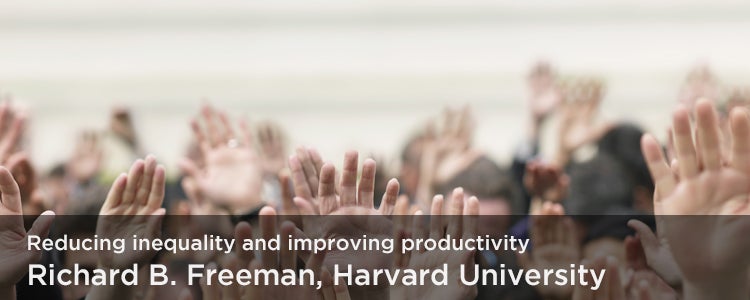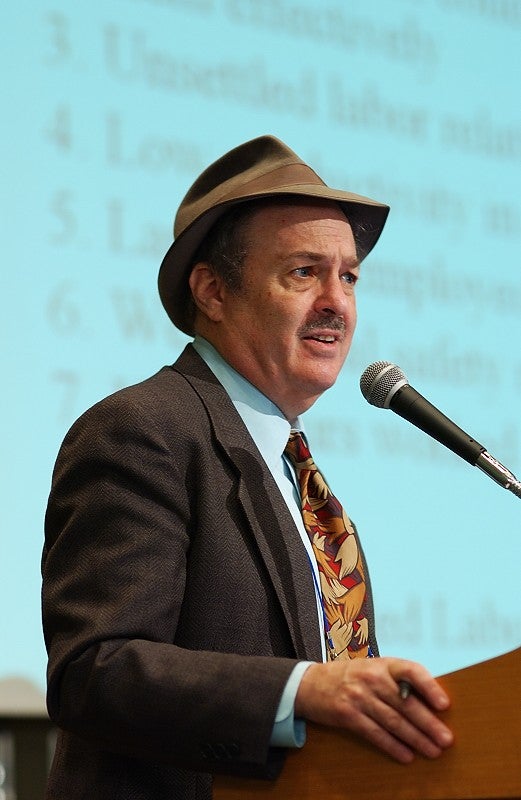
Reducing inequality and improving productivity by employee ownership:
evidence-based economic policy for 21st century capitalism
By Richard B. Freeman
Herbert Ascherman Chair in Economics at Harvard University
Tuesday, October 6, 2015
The spectre of inequality haunts modern capitalism, as a small elite gain the bulk of the benefits of economic growth and use their wealth to dominate economies and polities. In virtually every country, labour's share of income has fallen and inequality increased massively.
What can we do to arrest the growth of inequality, restore a strong middle class, and make sure that real wages of typical workers grow with productivity? Based on his research with coauthors Joseph Blasi and Douglas Kruse, Professor Richard Freeman argues that the answer lies in wider ownership of capital and worker participation in decisions at their workplace and firm. He gives evidence that this solution works and lays out ways to get from here to there.
About the distinguished lecturer

Richard B. Freeman holds the Herbert Ascherman Chair in Economics at Harvard University. He directs the National Bureau of Economic Research / Sloan Science Engineering Workforce Projects, and is Co-Director of the Harvard Center for Green Buildings and Cities. He is a Fellow of the American Academy of Arts and Science. He received the Mincer Lifetime Achievement Prize from the Society of Labor Economics in 2006. In 2011 he was appointed Frances Perkins Fellow of the American Academy of Political and Social Science.